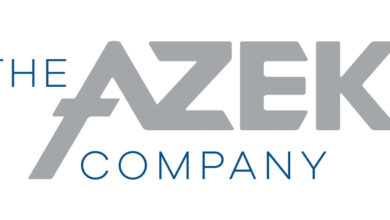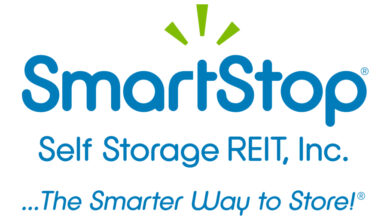Leading Plaintiffs Advocate Grant & Eisenhofer Files Class Action against Maine Paper Mill and Major Corporate Owners for Polluting Water and Soil with Toxic Chemicals Over 50-Year Period
Somerset Mill, located alongside the Kennebec River, has for decades discharged chemicals into water sources, dumped into landfills and sold as fertilizer, grossly contaminating property in Maine; former owner Kimberly-Clark and current owner Sappi Ltd., of South Africa, named as defendants
SKOWHEGAN, Maine–(BUSINESS WIRE)–Leading plaintiffs law firm Grant & Eisenhofer has filed a lawsuit seeking class status in Maine Superior Court against current and previous owners and operators of a paper mill that has for decades dumped toxic and long-lasting “forever chemicals” into water and soil, contaminating property and drinking-water sources.
The class seeks to represent anyone who lived in Somerset County, Maine – the state’s third-largest by area – for at least one year between 1967 through the present. The complaint asserts that Somerset Mill, a paper and pulp facility owned until 1995 by Kimberly-Clark Corp. and Scott Paper Co., and now by South Africa’s Sappi Ltd., is the source of dangerous pollutants in area residents’ drinking water in concentrations far exceeding federal government guidance.
The suit, filed March 8 in Maine Superior Court, alleges negligence and willful and wanton conduct for the deliberate discharging and dumping of synthetic industrial surfactants at sites across Somerset County, including on fields as fertilizer. Plaintiffs ask for relief in the form of damages and compensation, as well as an order that Somerset Mill owners past and present pay for ongoing diagnostic testing and medical monitoring of area residents at risk of developing illness from exposure to the chemicals.
“For more than 50 years the Somerset Mill has used the land and water of its home county as a chemical dumping ground,” says Elizabeth Graham, a director at Grant & Eisenhofer. “Further, during their time of ownership, the mill’s operators constructed shell businesses that functioned as owners of the mill but were in reality created to shield their corporate parents from the environmental mess they were making. They might be gone, but the effect of their negligence is neither gone nor forgotten.”
The lawsuit’s name plaintiff, Nathan Saunders, lives in Fairfield, Me., around six miles south of the mill, and is among the approximately 51% of Maine residents who obtain drinking water from private wells, which are neither subject to federal or state regulations nor to mandated testing. In January 2021, Mr. Saunders had his well water analyzed by the state of Maine, and discovered it was contaminated by PFAS (per- and polyfluoroalkyl substances), a family of man-made industrial chemicals. Mr. Saunders’s drinking water contained PFAS at 12,910 parts per trillion (ppt), nearly 185 times the 70 ppt limit recommended by the Environmental Protection Agency. State tests reveal that at least 18 private wells in Fairfield have PFAS levels higher than 70 ppt.
Also named as a defendant is Pine Tree Waste, Inc., of Maine, which, according to the complaint, “illegally and/or negligently disposed of 40,000 cubic yards of PFAS-containing biosolids from the Somerset Mill, every year from at least 1976 until 1984 in landfills… in Fairfield, Maine.”
Paper mill sludge has historically been repurposed into fertilizer for farmers’ fields, and PFAS-containing residue from Somerset Mill has figured in reports from the Maine Department of Environmental Protection showing elevated levels of PFAS chemicals in both agricultural soil and cows’ milk. In February 2020, the complaint says, Maine’s Dept. of Agriculture, Conservation, and Forestry tested milk from a dairy farm in Somerset County and found levels of PFAS chemicals at 12,700, 14,900, and 32,200 – the highest ever recorded in milk in the United States.
“For every pound of PFAS that is directly discharged into surrounding water sources,” the complaint says, “nine pounds of PFAS end up in paper mill sludge, also known as biosolids, that are either sent to landfills… or repurposed and distributed as fertilizer.”
The most notorious PFAS toxins at issue are perfluorooctanesulfonic acid (PFOS) and perfluorooctanoic acid (PFOA), which are used to make paper impermeable to grease, oil, dirt, and water. Non-biodegradable and resistant to breakdown by water or light, PFOS and PFOA leach easily through soil and are not filtered out by normal water-treatment processes. They have been known to persist in the human body, typically the blood, kidney, and liver, and to cross the placenta and to babies through breast milk.
“PFOS and PFOA are persistent and toxic, both in the environment and in the human body,” says Adam Gomez, Grant & Eisenhofer director and a leader of the litigation team. “A half-century’s exposure for residents of Fairfield and other Somerset County towns adds up to significant risk, which Kimberly-Clark and Scott, as well as Sappi, were all aware of and did nothing to address. This action seeks to remedy their disregard for residents’ safety and to ensure their physical health as well as their peace of mind.”
About Grant & Eisenhofer P.A.
Grant & Eisenhofer is one of the U.S.’s leading litigation firms, with a highly successful track record representing plaintiffs in complex litigation and arbitration matters. The firm has offices in Wilmington (Delaware), New York, Chicago, Birmingham, and San Francisco, and an international docket of high-profile cases. G&E’s clients include institutional investors and other plaintiffs in U.S. and international securities matters, derivative and corporate governance lawsuits, shareholder activism matters, bankruptcy litigation, antitrust actions, consumer class actions, whistleblower cases involving the False Claims Act, mass tort and environmental suits, birth injury litigation and civil rights suits. The firm has recovered billions for clients in just the last few years, and has twice been cited by RiskMetrics for securing the highest average investor recovery in securities class actions. G&E has been named one of the country’s top plaintiffs’ law firms by The National Law Journal for more than a decade, and was named one of the U.S.’s “Most Feared Plaintiffs Firms” as well as one of Delaware’s “Regional Powerhouses for 2018” by Law360. For more information, visit www.gelaw.com.
Contacts
James Bourne 914-318-2427 [email protected]
Allan Ripp 646-285-1779 [email protected]




